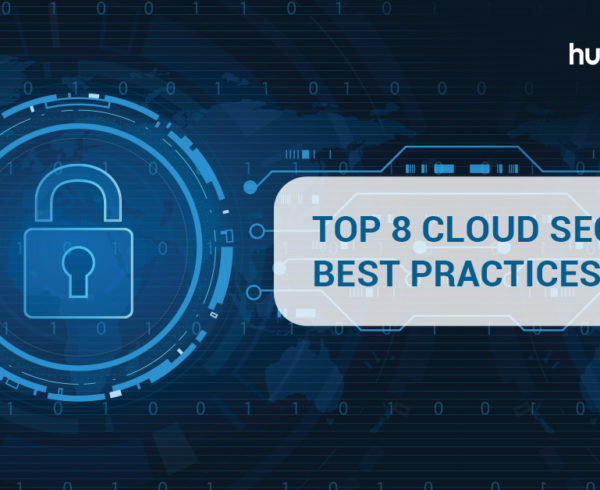Table of Contents:
- Introduction
- Top 10 Cloud Management Tools to Choose For Your Business
1. RackWare
2. Apptio
3. Snow Software
4. IBM Cloud Orchestrator
5. Accenture
6. OpenStack
7. Apache CloudStack
8. CloudHealth
9. RackSpace Cloud
10. Scalr CMP - Other Cloud Management Tools Worth Taking Into Consideration
- Conclusion
Introduction
The cloud computing industry has been growing steadily over the years, and with its evolution, businesses are adapting and becoming more agile. Cloud computing industry uses various tools for managing hybrid, public, and private cloud environments.
Cloud management tools help in facilitating access across software and hardware resources. Most enterprises who take advantage of cloud computing tools end up cutting costs and optimizing their cloud workflow.
Top 10 Cloud Management Tools to Choose For Your Business
1. RackWare
RackWare lets its users gain flexibility across any virtual or physical cloud environment. There are backup and data recovery options bundled along with its features. It’s excellent for migrating data over clouds and perfect for disaster recovery cases. For organizations that are looking to cut costs in their data management, RackWare is a versatile and flexible cloud management solution.
2. Apptio
Apptio makes budget management for large-scale enterprises easy. It has tools included that provide an in-depth analysis when it comes to managing costs and finances. The dashboard and SaaS services provide a complete overview of the organization’s financial profile. The software helps users reduce cost overruns when transitioning to more Agile methods of working.
3. Snow Software
Snow Software is designed to handle the management of various cloud resources for organizations. It helps optimize budget spend, manage risks, and get deep insights into an organization’s budget usage and vulnerabilities.
For businesses that have growing needs for tracking finances and want to automate every aspect of their pipeline, Snow Software is an ideal cloud management solution. Additionally, it unites hybrid and cloud technologies and has an intuitive user interface, which makes it extremely easy to use.
4. IBM Cloud Orchestrator
IBM Cloud Orchestrator helps businesses cut down on delivery times and manage public, private, and hybrid cloud environments. It offers a smooth user experience and leverages policy-based tools to automate various elements of cloud management. You can deploy development environments easily, and services can be integrated. There are also backup and security management tools included within the platform.
5. Accenture
Accenture is a cutting-edge cloud management platform that reshapes digital business enterprises. It helps brands improve enterprise operations and efficiency and cut down on costs while bolstering security and privacy measures. From data migration and SaaS services to secure cloud management, it provides businesses with all the cloud management tools needed for optimization and overall success.
6. OpenStack
OpenStack is an open-source cloud management platform that lets users create public and private clouds. It works with heterogeneous networks and is designed for deployment as an IaaS (Infrastructure as a Service) in organizations. What’s great about OpenStack is that it’s constantly evolving since users around the world contribute to its codebase. The platform supports third-party app integrations, legacy system migrations, and a lot more.
You also get the added benefits of efficient resource management and zero vendor lock-in periods when using it. And since it’s open-source, you get complete control and security over your data.
7. Apache CloudStack
Apache CloudStack is another open-source solution for cloud management. It is used as an IaaS in organizations and is capable of handling accounts management, financial resource monitoring, and running third-party APIs. Support for VMWare, KVM, Citrix XenServer, and more are included. You won’t run into any troubleshooting or bug issues since it features an engaging and growing community of users online. There are updates constantly made to the platform, and the user documentation is always kept up-to-date.
You can also create your own features on the platform and submit it to the community to be included for future releases.
8. CloudHealth
CloudHealth is one of the most trusted cloud platforms for handling risks that pop up for businesses in real-time. It helps enterprise owners track budget spends and gain visibility into business operations on a granular level. Teams can be monitored along with projects, applications, and budgets, thus providing more insight into financial management and making forecasting for future projects convenient.
Third-party apps like Slack and JIRA can be integrated with the platform. There are features related to threat detection, automated reporting, and setting benchmarks in policies that remove risks and audit compliance policies put in place. Overall, it provides a complete solution for budget management, cloud virtualization, and predictive analytics for enterprises.
9. RackSpace Cloud
What makes Rackspace Cloud services truly exceptional is customer support. For enterprises that are just starting out or growing, it’s a small company that helps manage your business’s cloud resources. You can bundle various services under one platform, and the company helps you manage them without having to handle everything yourself. You can ‘pay-as-you-go’ when you’re scaling up, and the platform has partnerships with services such as Microsoft Azure, Amazon Web Services, VMWare, and others. There are different packages available for their service, and in-depth guides are provided to users when they sign up.
10. Scalr CMP
Scalr CMP lets enterprises scale up their facilities without cutting any corners when it comes to budget tracking. It provides automation and standardized deployment cloud management tools along with a centrally unified user interface that provides smooth navigation and user experience. You can integrate third-party APIs, and it has no vendor lock-in periods, thus giving you the flexibility to be both agile and scalable as an enterprise. Multiple cloud platforms can be managed through Scalar CMP, and the Granular RBAC allows users to restrict access to different roles in Terraform.
Other Cloud Management Tools Worth Taking Into Consideration
Juniper Networks has Contrail Insights that makes monitoring performance and cloud optimization easy. Machine Learning (ML) algorithms provide real-time insights and feedback into troubleshooting issues and streamline the management of multiple cloud platforms. You can create live heatmaps of traffic and get historical topology views of your network devices, hosts, clones, and the connectivity between them.
Red Hat Cloudforms provides standardized deployment capabilities for cloud infrastructures. It has automation cloud management tools along with compliance and large-scale visualization measures. You can use it to deploy containers, and it maps out hierarchies in infrastructures clearly. Smart scale analytics and proactive capacity planning for getting real-time insights about the business workflow are added bonuses.
MultiCloud focuses on data migration across different clouds. It has a simplified dashboard that acts like Windows Explorer and lets users create file trees and directories. You can sync across cloud networks, and some of the online storage services supported by the platform are Google Drive, MEGA, Baidu, Cubby, Mediafire, and Yandex. What’s awesome about the tool is that it takes a ‘copy-and-paste’ approach when it comes to transferring files between FTP, cloud drives, and WebDAV.
Conclusion
Most of these cloud management tools we’ve listed take a self-service approach when it comes to making upgrades and expanding on file storage. For enterprises that require scalable turnkey solutions for cloud management, these platforms will prove to be effective. Being efficient and productive is what’s required of businesses these days, and ultimately, the cloud platform that you pick will depend on your personalization and customization needs. For small and medium enterprises investing in cloud infrastructure, Hurix offers flexible cloud management solutions. Do get in touch with us if you would like to get the best out of your cloud management.
Need to know more about our Products & Services? Drop us a note at marketing@hurix.com.











